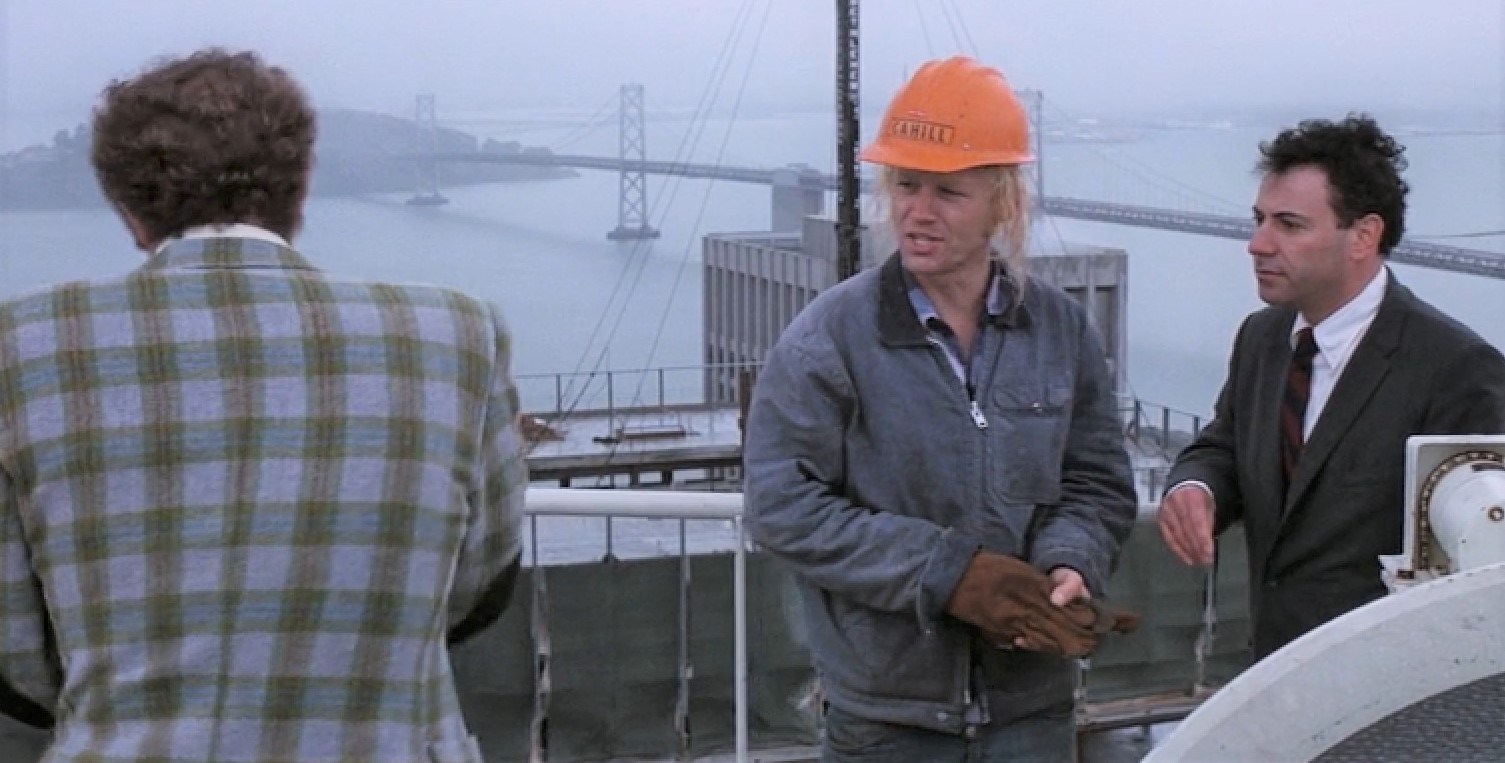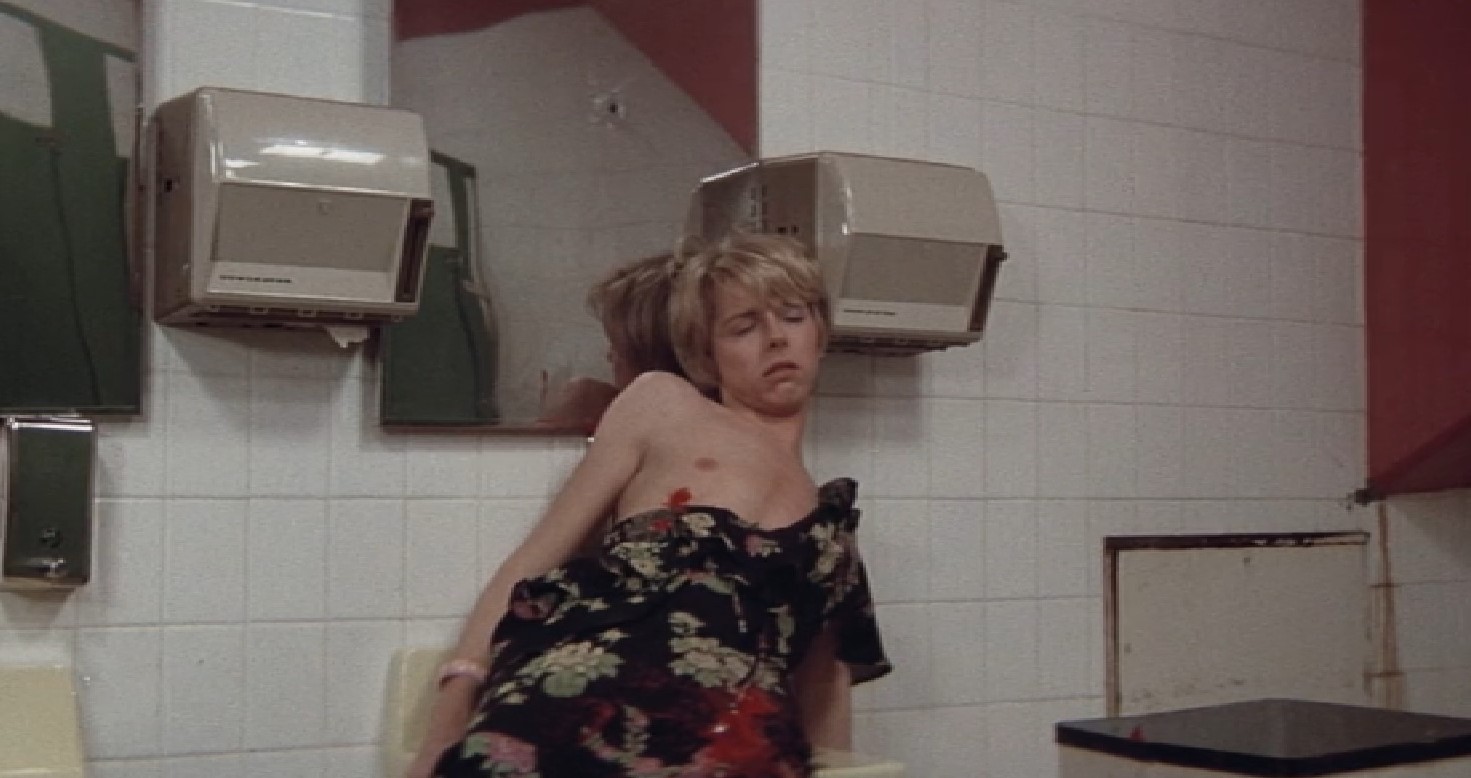It was the period when you could shoot, stab, punch, and humiliate cross-dressing men with complete abandon and glee. It was the 1970s. If the 1960s were all about peace, love, and understanding, many identity groups were still excluded going into the Seventies. A man who dressed like a woman in Seventies film and TV was little more than a convenient plot point signalling evil. Audiences automatically understood that this was an evil that had to be eradicated. Movies don’t allow for a lot of complexity. You have two hours or less, so you need to use shorthand. And this was one of the easiest, laziest ways to do it.
Freebie and the Bean: Christopher Morley
In 1974’s Freebie and the Bean, Christopher Morley and other actors, notably Paul Koslo at his twitchy best (and that character actor, the City of San Francisco Circa 1974) are the true stars. Headliners James Caan and Alan Arkin, by contrast, couldn’t have been more one-dimensional or annoying, their entire interaction running along the lines of:
FREEBIE: Whad’ ya!
BEAN: Hey, whad’ ya back!
Constantly, back and forth, this bickering “married male cop couple” dialogue being a familiar feature of Seventies shows and movies.

Like other cross-dressing characters of the Seventies, Christopher Morley’s characters have suffered many a fate. In Freebie, he was shot, kicked in the groin, and had half of his clothing torn off. In the TV show Switch, he was hit on the face by Robert Wagner and half-Nelsoned into a shower, water turned on, and wig ripped off.
Not Just Kill But Humiliate
As significant as the physical violence against Morley’s and other cross-dressing characters of that period is a certain indignity that is visited upon them. It’s not enough to riddle them with bullets; they also need to be humiliated. They need to be told that they will not find love. They need to be reminded that they are vain, and that their vanity is a cheap and tawdry one.
In Switch, watch carefully. When speaking to Wagner, Morley reaches for the small handgun secured to his leg by a holster. Then, so entranced by Wagner’s alleged debonair flair and manliness, Morley forgets his killer mission and begins to holster the handgun. He makes himself ready for the kiss, but no kiss is to be had. Wagner smacks him.
In Freebie, in the Candlestick Park scene where he fights James Caan, his character is so vain that he takes occasional breaks from delivering kicks and blows to Caan in order to primp himself. Vanity rules all, especially a cross-dresser’s vanity, right?
In T.J. Hooker, after William Shatner rips off Morley’s wig, the female co-star sputters the inevitable “She’s a…” Morley’s character responds, “If you’re confused, you should be in my heels.” The implication is that no cross-dresser can be secure in his convictions: he is eternally confused.
Even on the somewhat nicer end of the spectrum, while acting with Ted Knight in Too Close for Comfort, Morley experiences that classic Wig Reveal Moment.
Grace Under Pressure
Morley brings a unique calm and grace to his roles of that period. He is reserved, self-composed, sure of himself–anything but confused. Call it poise. In the Switch scene, contrast Morley’s low-key self-composure with Wagner’s oily fake swankiness.
Because the Freebie script was so convoluted, I was never clear on why I was supposed to hate Morley. And in that bizarre death scene, I found myself wanting the trim, doe-like Morley to prevail over big, lumbering James Caan.
In a YouTube comment about his characters of that time, Morley says, “That’s the best critique of my scripts so far….brutal and transphobic.” In his 60s now and living in West Hollywood, Morley is still around and continues to perform as a female impersonator.
YouTube Channel: Christopher Morley
